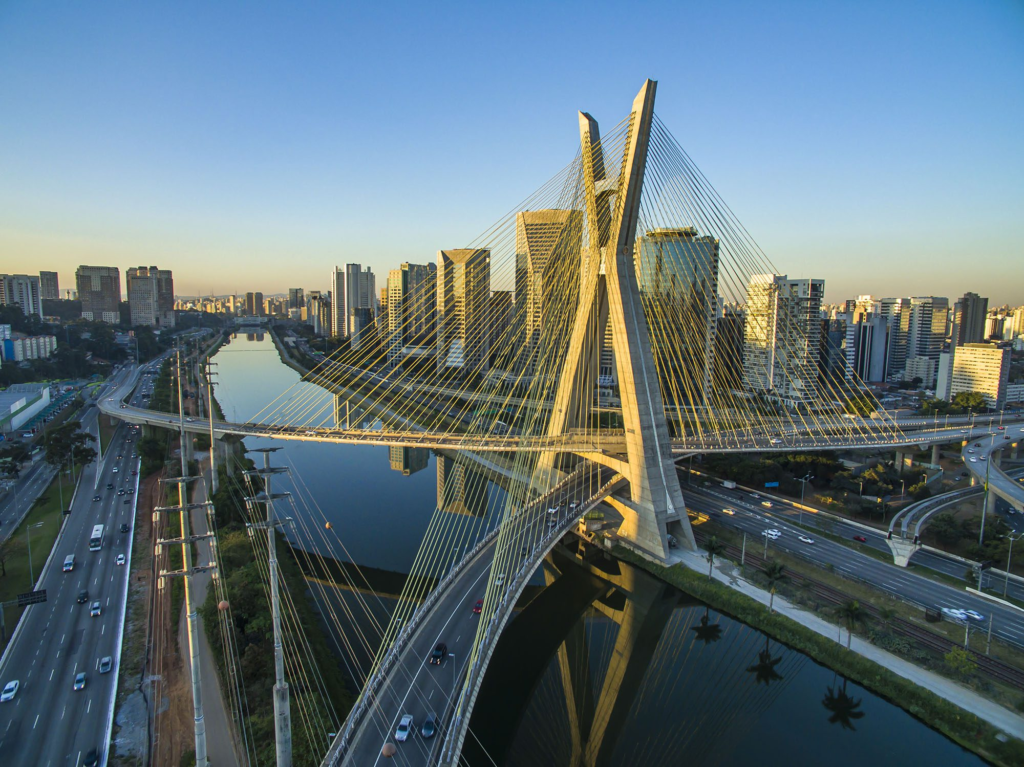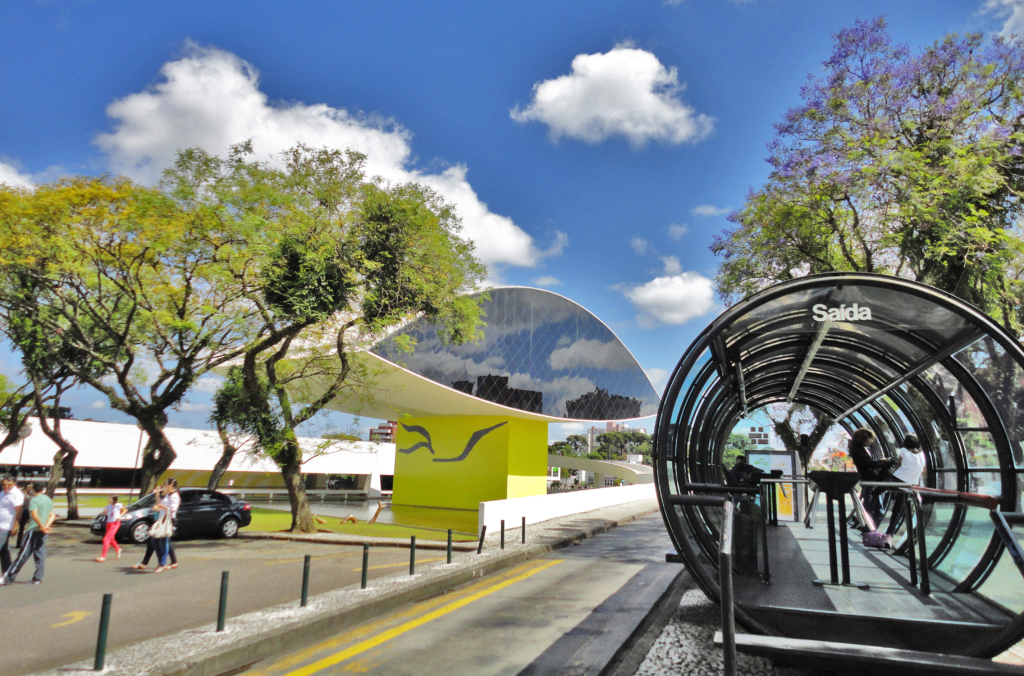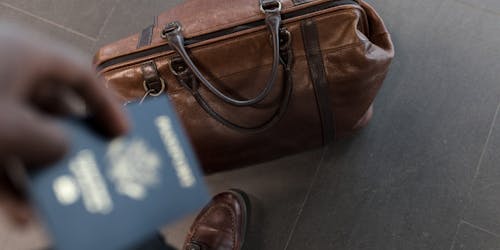When I originally pondered going to Brazil, I was stunned by the country’s vast diversity. Brazil offers a variety of lifestyles, from hectic cities to calm beach communities. As my research progressed, I found that the ideal spot to live in Brazil is heavily influenced by what you value daily. In this article, I’ll give insights and facts about the best places to live in Brazil based on different lifestyles, supported by statistics and unique anecdotes that most websites don’t cover.
Top 10 Places to Live in Brazil for Different Lifestyles
Brazil has a population of more than 211 million people, with a diverse culture, climate, and terrain. Whether you prefer the bright energy of city life, the tranquility of seaside towns, or the elegance of colonial cities, Brazil has something for everyone. Let’s look at the best places to live in Brazil for various lifestyles.
#1. Beach Life: Florianópolis

If you enjoy beach life, Florianópolis should be at the top of your list. Florianópolis, known as the “Island of Magic,” has over 40 beautiful beaches, each with its own special beauty. Florianópolis has something for everyone, whether you want to surf, sunbathe, or attend beach parties.
Highlights
- Beaches: The surf-friendly waves of Praia Mole and the family-friendly sands of Jurerê Internacional.
- Quality of Life: Recognized for its excellent standard of living, safety, and dynamic cultural environment.
- Economy: A thriving tech hub known as the “Silicon Valley of Brazil.”
When I visited Florianópolis, I was impressed by the combination of natural beauty and modern comforts. The inhabitants, known as “Manezinhos,” are extremely welcoming, and the fish is among the best I’ve ever had. Unsurprisingly, many expatriates choose to make this island their home.
#2. Urban Lifestyle: São Paulo

São Paulo is ideal for those who thrive in busy cities. São Paulo, Brazil’s largest city, is the financial hub of the country and provides several options for job advancement and cultural adventures.
Highlights
- Economy: Home to the São Paulo Stock Exchange and several multinational firms.
- Culture: A multicultural melting pot with museums, theatres, and a diverse food scene.
- Education: Top universities and foreign schools.
Living in São Paulo feels like being at the center of the action. During my stay, I was astounded by the city’s vibrant energy and the many possibilities for dining, entertainment, and shopping. However, traffic might be an issue, therefore residing close to your employment is recommended.
#3. Historical Charm: Ouro Preto

Ouro Preto provides a one-of-a-kind living experience for those who enjoy history and colonial architecture. This UNESCO World Heritage site showcases a well-preserved colonial village with cobblestone streets and baroque churches.
Highlights
- Architecture: Stunning colonial structures and churches, including the Church of Saint Francis of Assisi.
- Cultural Heritage: Rich in history, with museums and events commemorating the past.
- Scenic Beauty: Surrounded by mountains and beautiful greenery.
Walking through Ouro Preto seems like going back in time. The town’s historical significance and gorgeous views make it ideal for artists, historians, and others who prefer a slower pace of life.
#4. Coastal Living: Recife

Recife dubbed the “Venice of Brazil” because of its numerous waterways and bridges, provides an ideal balance of urban and beach life. It’s a cultural destination with a thriving arts scene and breathtaking beaches.
Highlights
- Beaches: Famous for Boa Viagem Beach, which has natural pools and pleasant waters.
- Culture: Folklore, music, and dance abound, particularly during Carnival season.
- Economy: A thriving business hub in the northeast region.
My time in Recife was packed with music, dancing, and delicious cuisine. The city’s cultural liveliness is intoxicating, and the residents are quite friendly. It’s an excellent choice for people seeking the best of both worlds—beach and city life.
Advertisements
#5. Nature and Adventure: Chapada Diamantina

Chapada Diamantina in Bahia is ideal for nature lovers and adventurers, with stunning scenery and an abundance of outdoor activities. This national park is known for its waterfalls, caves, and hiking routes.
Highlights
- Natural Beauty: Home to some of Brazil’s most breathtaking natural attractions, including Cachoeira da Fumaça and Gruta da Pratinha.
- Activities include hiking, caving, and exploring waterfalls.
- Community: Small, close-knit communities centered on sustainable living.
Exploring Chapada Diamantina was a transformative experience. The breathtaking beauty of the sceneries and the thrill of adventure were unrivaled. It’s ideal for folks who desire to live near to nature while maintaining an active lifestyle.
#6. Cultural Centre: Salvador

Salvador, the capital of Bahia, is well-known for its Afro-Brazilian culture, music, and cuisine. This city is ideal for anyone looking to immerse themselves in rich cultural traditions and colorful events.
Highlights
- Culture: Pelourinho is well-known for its Carnival and historic center.
- Music and Dance: The origins of samba and capoeira.
- Cuisine: Popular delicacies include acarajé and moqueca.
Salvador’s bustling street life and cultural festivals delight the senses. The city’s rich history and cultural legacy provide a distinct living experience that is difficult to replicate elsewhere.
#7. Modern Living: Brasília

Brasília, Brazil’s capital, boasts modernist architecture and well-planned urban design. It’s a good alternative for professionals and families seeking a well-organized and modern city.
Highlights
- Architecture: Oscar Niemeyer designed landmarks including the Cathedral of Brasília.
- Quality of Life: High living standards and effective healthcare and education systems.
- Green Spaces: Numerous parks and open areas for outdoor recreation.
Living in Brasília combines modernity and functionality. The city’s well-planned layout and modern infrastructure make it an enjoyable place to live.
Advertisements
#8. Beach Paradise: Natal

Natal, located in northeastern Brazil, is known for its gorgeous beaches and warm weather. It’s great for people who want to live a relaxed coastal lifestyle.
Highlights
- Beaches: Famous for Ponta Negra and Genipabu beaches.
- Weather: Approximately 300 sunny days per year.
- Activities: Popular activities include water sports and dune buggy rides.
Natal’s laid-back vibe and breathtaking coastline make it a beachgoer’s dream. The local seafood and welcoming community add to its appeal.
#9. Eco-Friendly Living: Curitiba

Curitiba is renowned for its environmental initiatives and excellent standard of living. It’s ideal for people who value sustainability and urban green spaces.
Highlights
- Green Spaces: Several parks and botanical gardens.
- Public Transport: An efficient and environmentally sustainable public transportation system.
- Quality of Life: Renowned for its cleanliness and well-planned metropolitan areas.
Curitiba’s devotion to sustainability and its numerous parks make it a perfect city for those who are environmentally aware. The city’s unique urban planning is remarkable.
#10. Artistic Community: Paraty

Paraty, a colonial village on the Costa Verde, is recognized for its artistic community and historical significance. It’s an excellent destination for artists and anyone who values cultural heritage.
Highlights
- Historical Architecture: Well-maintained colonial structures.
- Art Scene: Several galleries, studios, and cultural events.
- Naturally Beautiful: Surrounded by beaches, mountains, and waterfalls.
Paraty’s artsy flair and old streets create an amazing atmosphere. The combination of cultural riches and natural beauty is very alluring.
What Is the Cost of Living in Different Brazilian Cities?
Living costs in Brazil vary greatly based on the city and lifestyle you like. Here’s a full breakdown of the costs in some of the most popular expat choice places in Brazil.
São Paulo
São Paulo, the financial powerhouse of Brazil, is notorious for its high living costs. Below is a breakdown of the average monthly expenses:
- Housing: Renting a one-bedroom apartment in the city center can cost between BRL 3,500 and BRL 5,000 (USD 700 to USD 1,000), while outside the center it may cost between BRL 2,000 and BRL 3,000 (USD 400 to USD 600).
- Transportation: A monthly public transportation pass costs around BRL 230 (US$ 45). Owning a car incurs increased costs due to fuel prices and parking fees.
- Dining: Eating out may be costly, with a mid-range restaurant meal costing approximately BRL 70 (USD 14) per person. However, local restaurants and street food are more economical possibilities.
Rio de Janeiro
Rio de Janeiro is known for its stunning beaches and colorful culture, but it also has rather expensive living costs.
- Housing: A one-bedroom apartment in the city center costs between BRL 3,000 and BRL 4,500 (USD 600 to 900). Outside the center, prices range from BRL 1,800 to BRL 2,500 (USD 360 to USD 500).
- transit: A monthly public transit pass costs approximately BRL 200 (USD 40). Taxis and ride-sharing services are also popular, but they increase the cost.
- Dining: Similar to São Paulo, dinners at mid-level restaurants range from BRL 60 to BRL 80 (USD 12 to USD 16) per person.
Florianópolis.
Florianópolis, noted for its quality of living and magnificent beaches, offers a less expensive lifestyle:
- Housing: A one-bedroom apartment in the city center costs between BRL 2,000 and BRL 3,000 (USD 400 and USD 600), but outside the center, it can be as low as BRL 1,200 to BRL 1,800 (USD 240 to USD 360).
- Transportation: A monthly pass costs approximately BRL 150 (USD 30).
- Dining: Eating out is less expensive, with a dinner at a mid-range restaurant costing approximately BRL 50 (USD 10) per person. Fresh seafood is especially tasty and cheaply priced.
Recife
Recife provides a blend of urban and coastal living at a relatively affordable cost:
- Housing: A one-bedroom apartment in the city center can cost BRL 1,800 to BRL 2,800 (USD 360 to USD 560), while outside the center, it’s around BRL 1,200 to BRL 1,800 (USD 240 to USD 360).
- Transportation: A monthly public transport pass costs around BRL 150 (USD 30).
- Dining: Dining out is reasonable, with mid-range restaurant meals ranging from BRL 45 to BRL 60 (USD 9 to USD 12) per person.
Salvador
Salvador, recognized for its rich culture and history, is a cheap alternative.
- Housing: A one-bedroom apartment in the city center costs between BRL 1,500 and BRL 2,500 (USD 300 to USD 500), while outside the center it costs between BRL 1,000 and BRL 1,500 (USD 200 to USD 300).
- Transit: A monthly public transit pass costs approximately BRL 140 (USD 28).
- Dining: Mid-range restaurant meals cost between BRL 40 and BRL 55 (USD 8 to USD 11) per person, making dining out cheap.
How Safe is Brazil for Expats?
Safety in Brazil varies greatly by city and neighborhood. While some places in Brazil have higher crime rates, others are regarded as relatively safe to live in. Here’s what you should know.
São Paulo
- Safe Neighbourhoods: Vila Madalena, Jardins, and Moema are popular with expats and generally safe.
- Caution locations: Some locations, particularly those on the outskirts, can be less safe, so exercise caution, especially at night.
Rio de Janeiro
- Safe Areas: Expats prefer neighborhoods like Ipanema, Leblon, and Barra da Tijuca, which are noted for their safety.
- Caution Areas: Avoid favelas and other regions of the city with high crime rates.
Florianópolis
- Safe Areas: The island is usually safe, with neighborhoods like Lagoa da Conceição and Jurerê Internacional being especially safe.
- Caution neighborhoods: As with any city, some neighborhoods may experience occasional minor crime, therefore it’s critical to remain watchful.
Recife
- Safe Areas: Boa Viagem and Pina are safer neighborhoods with a significant expat population.
- Caution Areas: Some inner-city neighborhoods can be less safe, so it’s best to do your homework and choose your neighborhood carefully.
Salvador
- Safe Areas: Barra, Rio Vermelho, and Graça are known for their safety and are popular among expats.
- Caution Areas: As with other cities, certain areas should be avoided, particularly after dark.
What is Brazil’s Healthcare System Like?
Brazil has a mixed healthcare system that combines public (SUS) and private services.
Public Health (SUS)
- Accessibility: The Sistema Único de Saúde (SUS) offers free healthcare for all inhabitants, including expats.
- Quality: While the quality varies, public hospitals in major cities often provide superior services. However, wait times might be lengthy, and facilities may be overcrowded.
Private Healthcare
- Quality: Private healthcare in Brazil is often of good quality, with shorter wait times and improved facilities. Many doctors in private hospitals know English and have had training abroad.
- Cost: Private health insurance is advised for foreigners to provide access to high-quality services. Costs vary depending on coverage, age, and health status, but comprehensive plans can cost between BRL 300 and BRL 1,000 per month (USD 60 to USD 200).
- Popular private health insurance companies include Amil, Bradesco Saúde, and SulAmérica.
Healthcare Access
- Availability: In major cities like São Paulo and Rio de Janeiro, there are several public and private healthcare options. Private healthcare options may be limited in smaller towns or rural areas, so planning ahead of time is vital.
Understanding Brazil’s living costs, safety, and healthcare system can help you make an informed decision about relocating to this diverse and lively country. Whether you like a frenetic metropolitan life or a peaceful coastal existence, Brazil has something for everyone.
Conclusion
Brazil’s diverse landscapes and cultures have something for everyone, whether you want the thrill of city life, the serenity of a beach town, or the elegance of a historical village. Exploring these possibilities can help you find the ideal place to call home. Have you considered migrating to Brazil? What lifestyle best suits you?
Related Articles
- Is It Safe To Visit Colombia Right Now? Don’t Visit Until You Read These Surprising Safety Tips
- BEST COUNTRIES TO STUDY MEDICINE IN 2024-2025
- Canadian Immigration: How to Japa From Naija to Canada
- Citizenship by Naturalization: A Comprehensive Guide for Nigerians Seeking U.S. Citizenship
References
Advertisements






